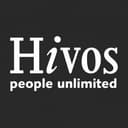Vertical Atlas
Vertical Atlas is a new atlas to help us navigate the digital geopolitics of the world today. Vertical Atlas is a book, a digital publication and an exhibition. Join us for the festive launch of Vertical Atlas on Thursday October 27th, 8pm at Het Nieuwe Instituut. With lectures by Nanjala Nyabola, Benjamin H. Bratton and a performance by Francois Knoetze.
How to navigate the rapidly changing digital geopolitics of the world today? How do we make sense of digital transformation and its many social, political, cultural, and environmental implications at different locations around the world?
_Vertical Atlas _brings together the insights of a diverse group of internationally renowned artists, scientists and technologists from different backgrounds and places. From an investigation into the lithium mines in the Democratic Republic of Congo to maps of the fiber-optic submarine cables in the Atlantic and the ride-hailing platforms of China.
Vertical Atlas is not a classic atlas that depicts the world in a uniform manner and it is also not a simple collection of traditional maps. It is a tool that enables comparisons, connections and contradictions between different and diverse visions, realities and worlds - through newly commissioned diagrams, interviews, essays and works of art by leading experts from around the world.
This publication is the result of a four-year collaboration between Hivos and Het Nieuwe Instituut. It is published by ArtEZ Press.
_The _Vertical Atlas project aims to create a new atlas to help navigate the complex techno-politics of the world today. The first stage of Vertical Atlas was developed through a series of five public talks and research labs (2018-2019). Currently Vertical Atlas focuses on the development and realisation of a combined physical and digital publication.
Join us for the festive launch of _Vertical Atlas _on Thursday October 27th, 8pm at Het Nieuwe Instituut. With lectures by Nanjala Nyabola, Benjamin H. Bratton and a performance by Francois Knoetze.
Access the free digital publication here (available from October 27th, 2022)
The Vertical Atlas book will be available for purchase at the bookshop in Het Nieuwe Instituut. Pre-Order the book via the ArtEZ Press webshop here
Navigating techno-political realities
Navigating the technological realities we live in has become increasingly difficult. Old cultural, economic and political structures are now mixed, overlayed, infiltrated, enhanced and undermined by a set of new technological fixtures. The computer in the palm of your hand is the entry point to an accidental planetary structure linking lithium mines in Chile to offshore data servers in Russia, to fibre-optic submarine cables in the Atlantic to freeports in Singapore, to corporate-owned satellites in orbit, to a swelling quantity of IP addresses and teraflops of data.
Current navigation tools cannot account for new folded, fractal borders created in digital space and that materialise in cobalt mines in Congo, owned by Chinese state run companies, or in digital interfaces intended to discourage immigration. Cities as well as states and other organisations are becoming increasingly non-local digital platforms, while cloud platforms have taken over some traditional government roles such as identification and cartography. If we want to use maps as wayfinding tools or navigational aids, then we need other kinds of mappings to guide us through these new formations in hybrid spaces.
Other cartographies
Cartography has for centuries been a tool in the service of existing power structures. It helped organise the colonial project of Western powers, and in turn reflected and codified its effects. Current corporate-run mapping systems such as Google Maps or Bing are made to serve the needs of global and local market powers, and in doing so reflect once again, a singular, implicitly normalised perspective that has inherited traits of the colonial project.
In this context, Vertical Atlas proposes a multifocal as well as multivocal approach, one which prevents one standardised perspective informing the depictions of the world. Rather, the project adopts different perspectives and techniques in order to acknowledge realities from different positioned cultural, political, biological, machinic and other embodiments.
Geozones
During the 2018-2019 Vertical Atlas Research Labs five geozones were explored and re-mapped, focusing on the technological and political borders, connections and frictions within them, and looking at the different ways digital technologies function culturally.
Geozones are a trans-continental regions that defy common cartographical logics. They are characterised by certain techno-political arrangements and their related set of frictions and fractures among political, economic and algorithmic sovereignties. The project invited prominent voices in policy making, law, art, design and technology to develop new perspectives on global and regional techno-politics. The content produced and documented from these events is available in this web magazine.
Backgrounds
Mappings in Vertical Atlas together deploy a wide set of coordinates representing spatial, temporal, qualitative, aesthetic, political, material technological dimensions of the issues at stake. In his book _The Stack_, Benjamin Bratton proposes a model that helps understand the global digital sphere through the metaphor of a platform with six functional layers. Yuk Hui in The Question Concerning Technology in China, develops the notion of cosmotechnics, exploring the cultural functioning of technology through other metaphysical lenses than the universalistic western take.
These concepts, among others, serve as reference frames for the Vertical Atlas project. All mapping contributions are led by people who have direct, lived experience with situated techno-political architectures.
Partners
V__ertical Atlas is a collaboration between Hivos and Het Nieuwe Instituut. The editors are Leonardo Dellanoce, Amal Khalaf, Klaas Kuitenbrouwer, Nanjala Nyabola, Renée Roukens, Arthur Steiner and Mi You. Vertical Atlas was initiated in 2018 by Benjamin Bratton, Leonardo Dellanoce, Arthur Steiner and Klaas Kuitenbrouwer.
Supported by Sida, Creative Industries Fund NL, New Silk Roads
This project was made possible thanks to:
 Hivos
Hivos